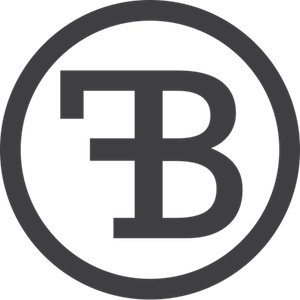A common assumption is that students are digital natives immersed in digital technology, and that young people pick up the skills necessary to use today’s technology in a fluid and informed manner. Evidence suggests otherwise - young people struggle with evaluating the accuracy of online information (1).
While many youngsters are skilled users of digital devices and applications, research shows that a surprising number struggle with information evaluation and are inexperienced in evaluating content from online sources (2), for example to distinguish advertisements from other content. In fact, we all struggle with evaluating the accuracy of claims made on social media.

The internet and social media are used by various actors to spread disinformation and they often use the language of science to give credibility to their claims. This undermines trust in science and, more broadly, trust in democracy.
It is therefore important to take a healthy critical approach to the information disseminated online, a skill that should be practised from primary school onwards.
Every member of our society should be able to judge when scientific claims are reliable. This requires both a basic knowledge of science and good digital information literacy skills. Digital media and information literacy must be taught and practised until it becomes as natural as riding a bicycle. (3)
Thinking and learning to learn is one of the Finnish cross-curricula themes (4), which refers to all those skills that can be learned through exploration and experimentation. It includes an
investigative and observational way of working, as well as independent and extensive information gathering, and the analysis of the information gathered. Emphasis should be placed on critical thinking and reasoning skills and their development.
Students should be encouraged to reflect on issues from different perspectives, to seek new information and to use this information to examine their ways of thinking. Students need encouragement in the presence of ambiguous and contradictory information. The practical implementation of such a learning framework involves all kinds of activities in which students are taught to (5):
- clarify and specify ambiguous information and re-state arguments (e.g. when evaluating an election or advertising campaign, or when evaluating a blog post).
- identify and evaluate arguments in the communications they encounter.
- compare contradictory claims about reality and evaluate contradictions using their own judgement (e.g. by referring to facts).
- practise metacognition, i.e. awareness of one’s own thinking and conscious reflection on one’s own opinion formation.
- identify the influences of digital media and challenge distortions through researched information.
Critical thinking means careful reflection and cautious analytical thinking. It does not imply an inherently negative attitude towards the subject of criticism.

The development of critical thinking skills is a long-term process, best learned and taught through practical situations. A student may well understand why critical thinking is important and recognise the lack of it in others, but still be completely uncritical in practical situations.
To avoid critical thinking becoming encapsulated, i.e. limited to one context or type of situation, this practical training needs to be done in a variety of contexts and situations. Generalised, i.e. context-independent, critical thinking is best learned by applying the same simple critical thinking methods to different subjects, themes and events.
In social media, we have to make choices all the time: do I click, like, share, comment? In the digital world, critical thinking is largely a matter of patience, reflection and resistance to mis- and disinformation.
References:
(1) Osborne, J., Pimentel, D., Alberts, B., Allchin, D., Barzilai, S., Bergstrom, C., Coffey, J., Donovan, B., Kivinen, K., Kozyreva. A., & Wineburg, S. (2022). Science Education in an Age of Misinformation. Stanford University, Stanford, CA.
(2) Perusopetuksen opetussuunnitelman perusteet (2014) https://www.oph.fi/fi/koulutus-ja-tutkinnot/perusopetuksen-opetussuunnitelman-perusteet
(3) Uudet lukutaidot https://uudetlukutaidot.fi/
(4) Osborne, J., Pimentel, D., Alberts, B., Allchin, D., Barzilai, S., Bergstrom, C., Coffey, J., Donovan, B., Kivinen, K., Kozyreva. A., & Wineburg, S. (2022). Science Education in an Age of Misinformation. Stanford University, Stanford, CA.
(5) Informaatiolukutaito-opas https://faktabaari.fi/assets/Informaatiolukutaito-opas_Faktabaari_EDU.pdf
Kari Kivinen, PhD, is an Education outreach expert at EUIPO. He has over 30 years of experience in international education. Since 2017 he has led the pedagogical development work at Faktabaari EDU digital information literacy service building on fact-checking methodology and co-authored and piloted the learning materials with fellow teachers around Finland and abroad. He is a member of the Commission expert group on tackling disinformation and promoting digital education. The author works for EUIPO and agency of the EU but the views expressed are purely personal and cannot be taken as being official statements of either the EU or the EUIPO.
Artwork: Lumi Pönkä
Download the Digital Information Literacy Guide (PDF).

